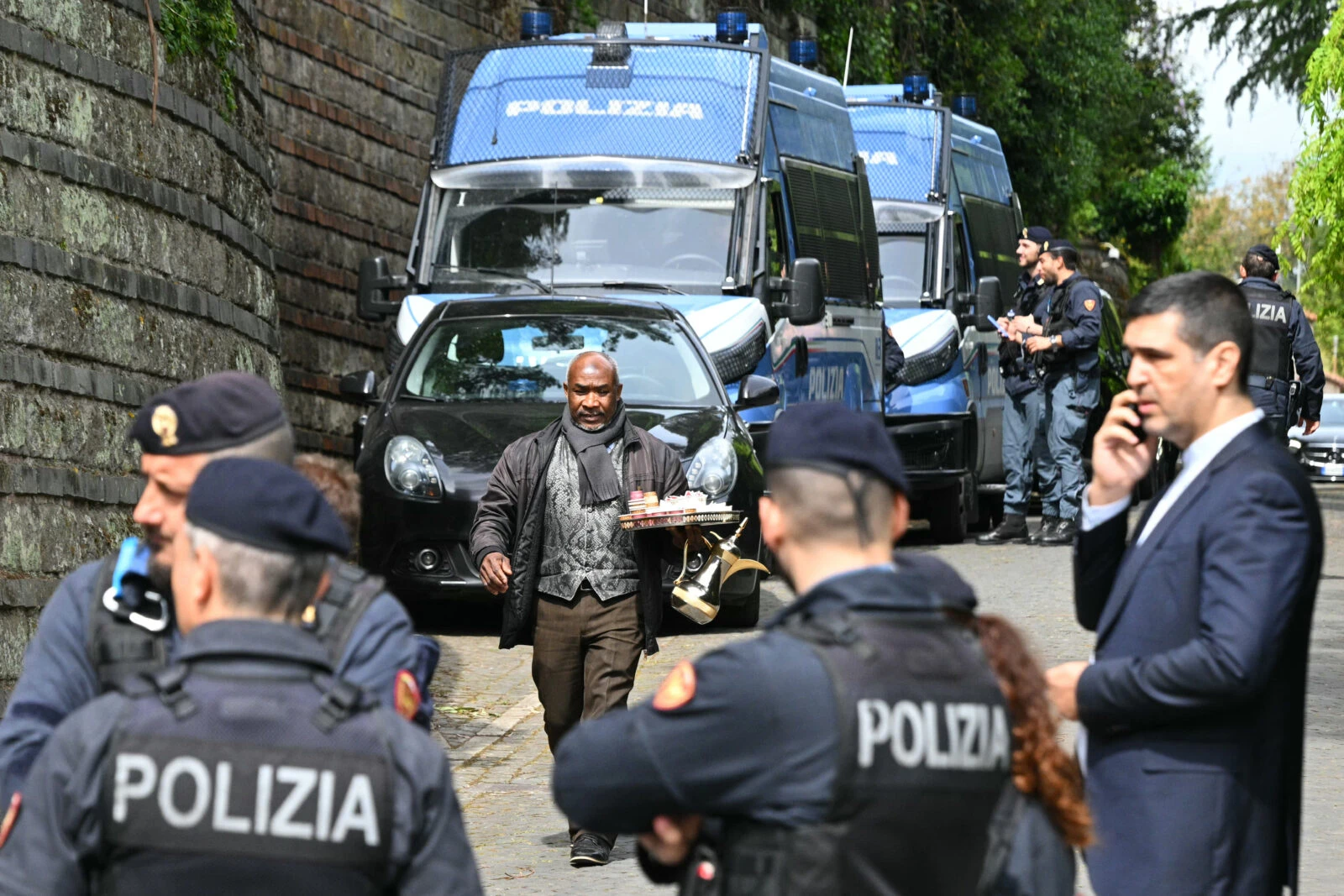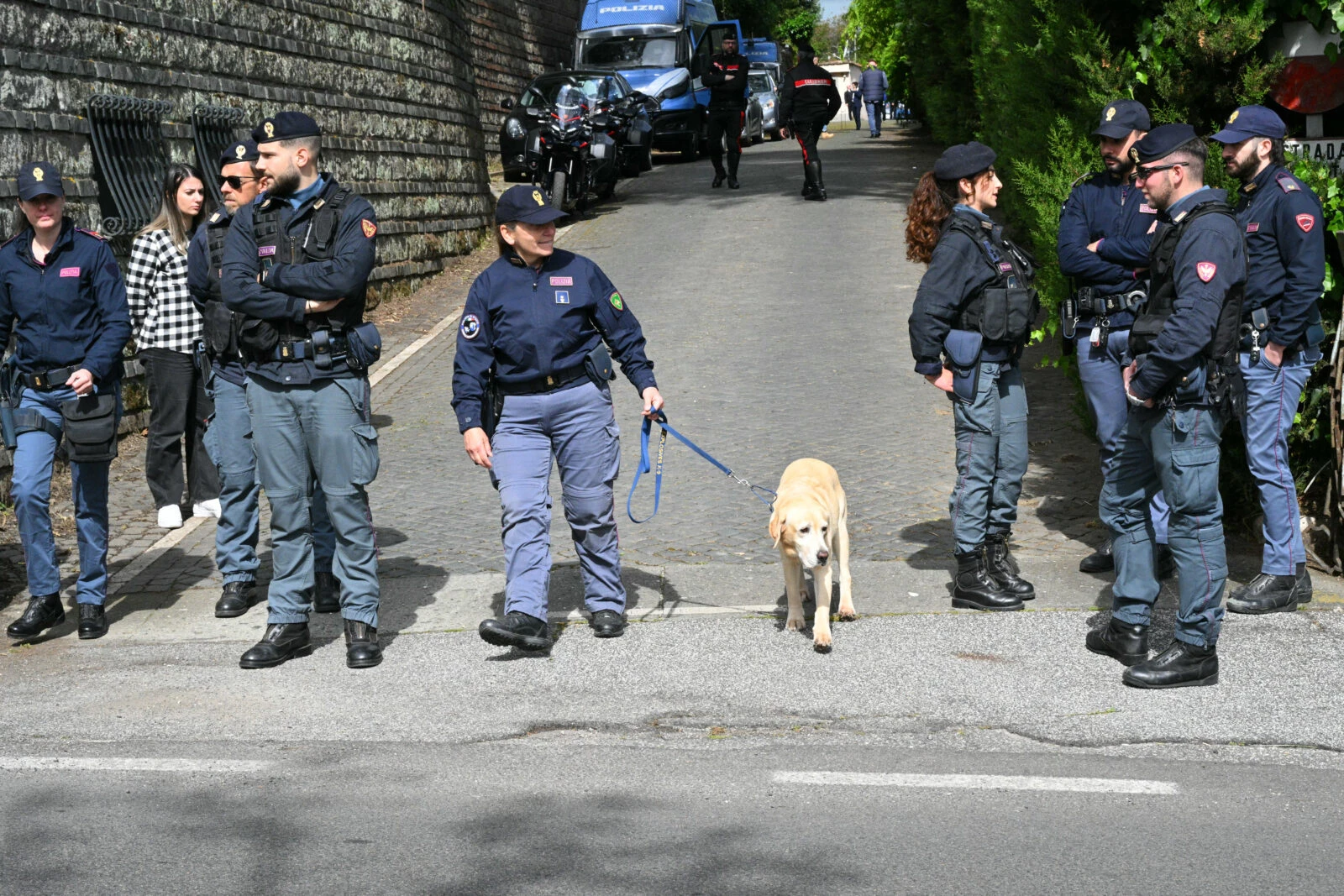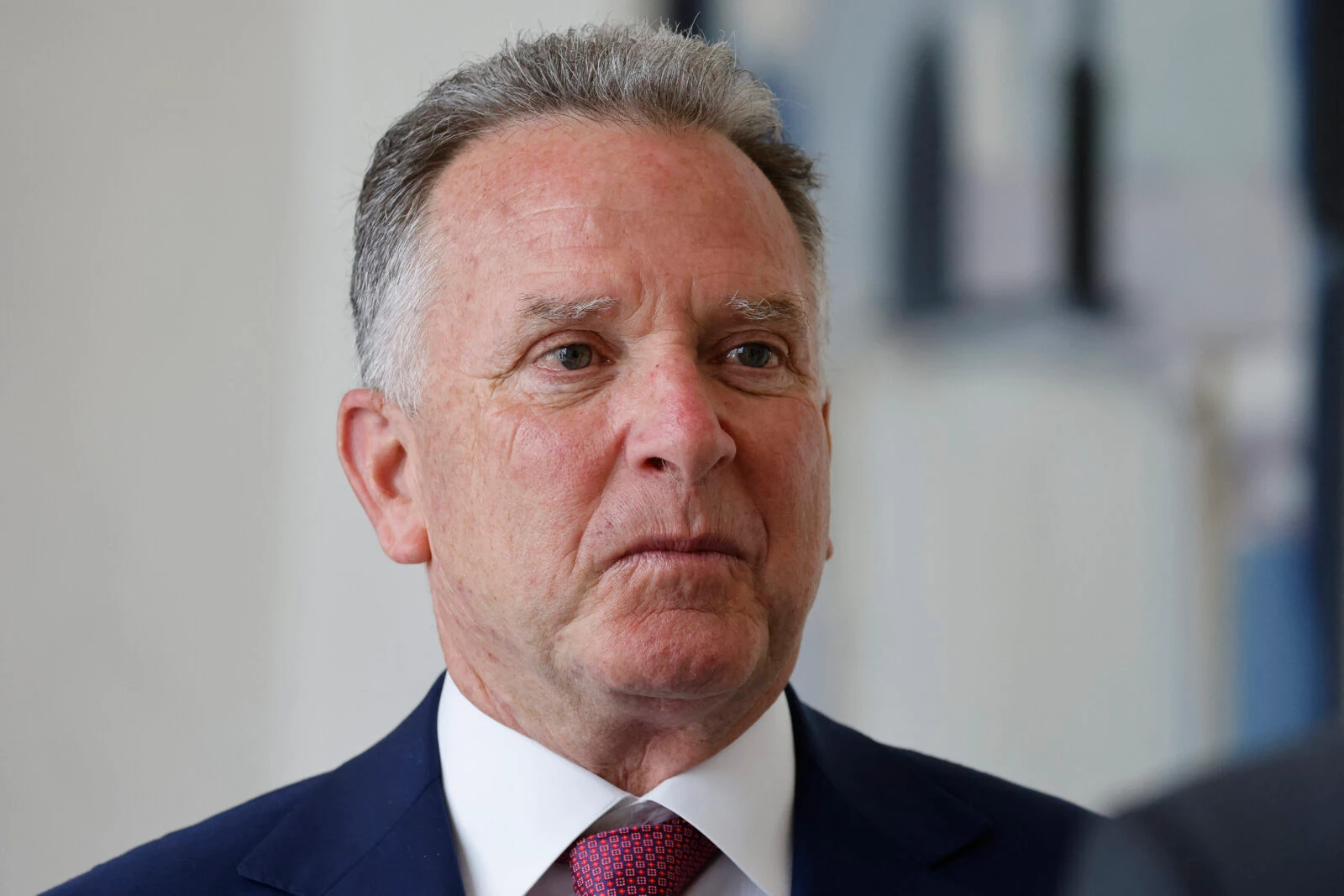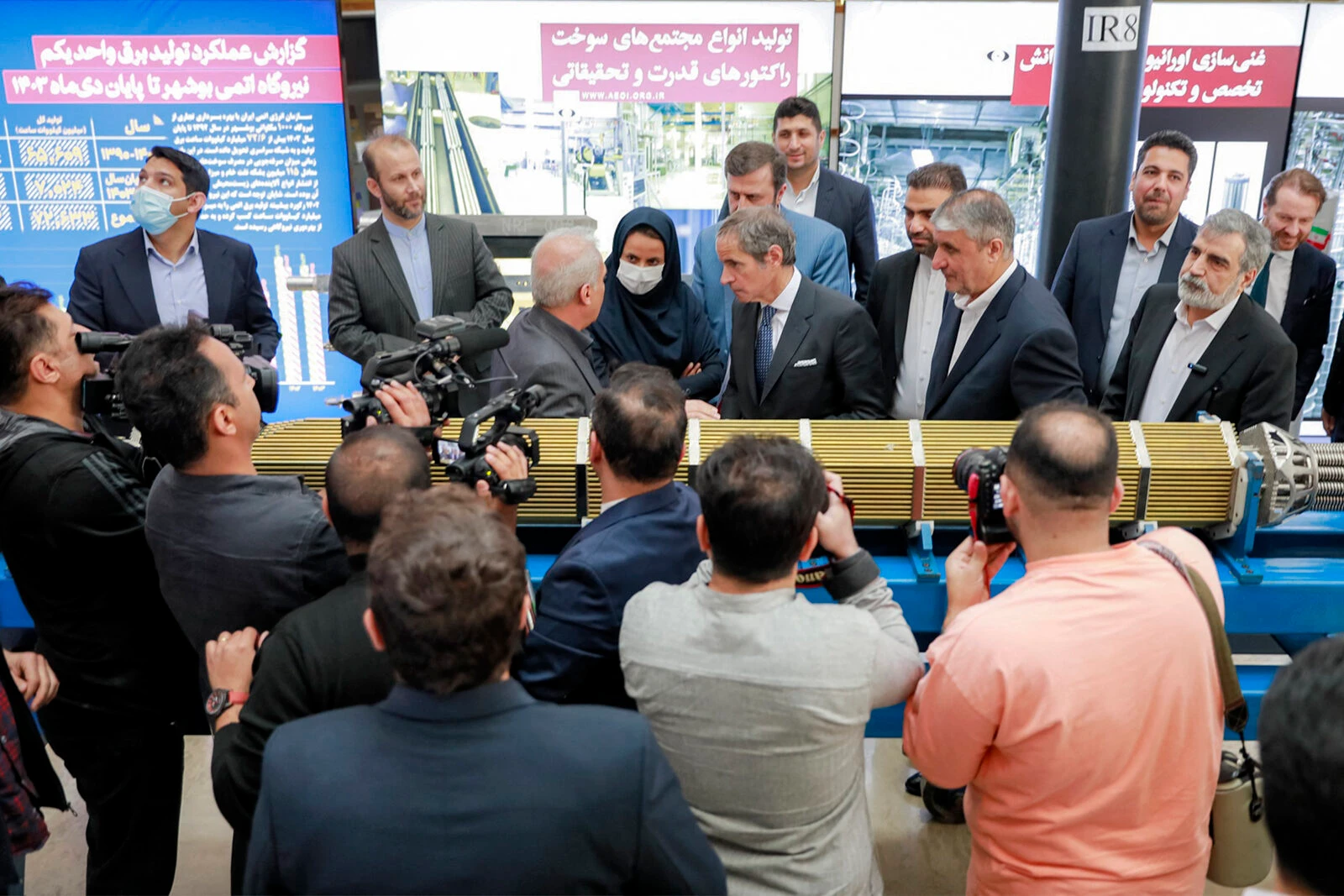Iran, US hold second round nuclear talks in Rome amid deep divisions
 A picture shows the entrance of the Omani embassy in Rome where a second round of nuclear talks between Iran and the United States being held on April 19, 2025. (AFP Photo)
A picture shows the entrance of the Omani embassy in Rome where a second round of nuclear talks between Iran and the United States being held on April 19, 2025. (AFP Photo)
A second round of nuclear talks between Iran and the United States began around 0930 GMT on Saturday in Rome, Iranian state television reported.
The mediated talks, facilitated by Omani officials, come one week after the two sides held an initial session in Muscat, Oman, which both described as “constructive.”
The discussions are being held at Oman’s embassy in Rome, under the mediation of Omani Foreign Minister Badr al-Busaidi, and are aimed at reviving nuclear diplomacy after a year-long impasse.

Iran demands sanctions relief, enrichment rights, and guarantees
Iran has reiterated its readiness to limit its nuclear program in a manner that prevents weaponization, provided that U.S. sanctions are lifted.
Tehran also seeks recognition of its right to enrich uranium, and insists on guarantees that Washington will not again unilaterally exit any future deal.
Iran wants any agreement to receive congressional approval in the United States, and has rejected negotiations on issues outside the nuclear file, including its ballistic missile program and regional military posture.

US seeks rollback of enrichment; position unclear on broader demands
The United States has offered mixed messages on its expectations. Envoy Steve Witkoff has signaled openness to Iran enriching uranium up to 3.67%, as permitted under the 2015 JCPOA, while other senior officials, including Secretary of State Marco Rubio, have insisted on a complete halt to Iran’s enrichment activities.
Iran is currently enriching uranium up to 60%, well above the 2015 cap but below the 90% threshold for weapons-grade material.
The White House has yet to clarify its position on whether it seeks a full dismantling of Iran’s nuclear program or a return to previously agreed limits.

External pressures and obstacles
Despite the resumption of talks, deep mutual mistrust, U.S. efforts to include non-nuclear issues, and Israeli opposition continue to pose significant obstacles.
Israel remains adamantly opposed to any deal that does not result in the complete dismantling of Iran’s nuclear infrastructure, and has warned it may act unilaterally to stop Tehran from obtaining nuclear weapons.
Iran’s Supreme Leader Ayatollah Ali Khamenei has voiced skepticism, warning that negotiations “may or may not yield results.”
Khamenei’s senior adviser, Ali Shamkhani, emphasized before the Rome talks that Iran’s aim is not surrender, but to achieve a balanced agreement. He outlined nine principles including guarantees, lifting sanctions, avoiding threats, and facilitating investment.

A critical moment in negotiations
International Atomic Energy Agency (IAEA) Director Rafael Grossi said earlier this week that Iran is “not far” from being able to produce a nuclear bomb, adding that the current phase of negotiations is “crucial” and time-sensitive.
The snapback mechanism under the JCPOA, which would reinstate UN sanctions on Iran for non-compliance, remains valid until October 2025. Iran has warned it may withdraw from the Nuclear Non-Proliferation Treaty if this is triggered.



